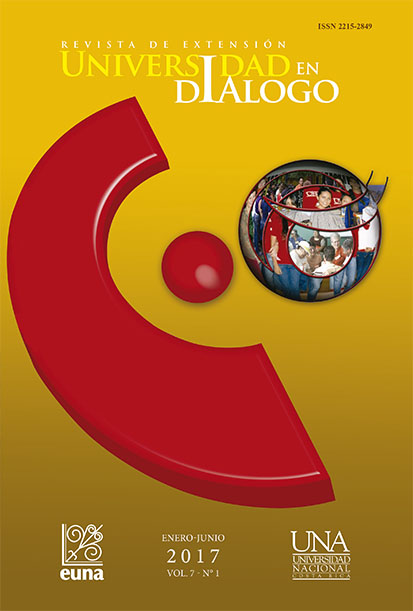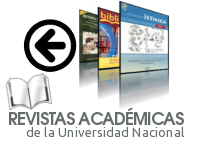Kúlkuok I Cha Mathematics textbook: Systematization of the Construction Process With Bribri and Cabécar Peoples in Costa Rica
DOI:
https://doi.org/10.15359/udre.7-1.1Keywords:
bribris, cabécares, ethnomathematics and school texts, math and culture, systematization of experiences, mathematics textbooks.Abstract
This article describes the systematization of lessons learned and significant experiences obtained from the joint construction process of the Kúlkuok I Cha Seventh Grade Mathematics textbook in the Bribri and Cabecar territories in Costa Rica. This text provides the first attempts to incorporate ethnomathematical knowledge of these native peoples and to contextualize secondary education curriculum. The article intends to present the qualitative process of construction as a critical process of transcendence, giving voice to the participants of the process and showing illustrative images. So, the results shown are processes of university extension to the community, which are described in the systematization as a resource to share the work of this initiative and the tasks carried out in the Bribri and Cabécar communities through the dialogue between different types of knowledge. A qualitative participative methodology with narrative design was implemented. Written and oral testimonies of participants in the process were collected. The most important results were a frequency distribution revealing the most significant experiences for the team and the lessons learned in the construction stages of this text.
References
Abarca, F. (2011). La sistematización de experiencias: claves para la interpretación crítica. Universidad en Diálogo, 1(1), 115-136. Recuperado de http://www.revistas.una.ac.cr/index.php/dialogo/article/view/1229/1150
D’Ambrosio, U. (2002). Etnomatemática. Eslabón entre las tradiciones y la modernidad. Belo Horizonte: Autêntica Editora.
Díaz, L., Jiménez, L., Navarro, M., Blanco, G. y Montoya, E. (2014). Formación metodológica en sistematización de experiencias: un proceso de trabajo interuniversitario. Universidad en Diálogo, 4(1), 63-91.
Grenier, L. (1999). Conocimiento indígena: guía para el investigador. San José, Costa Rica: Editorial Instituto Tecnológico de Costa Rica y Centro Internacional de Investigadores para el Desarrollo (Canadá).
Hernández, R., Fernández, C. y Baptista, M. (2010). Metodología de la Investigación. Perú: McGraw-Hill.
Jara, O. (2013). Orientaciones teórico-prácticas para la sistematización de experiencias. Recuperado de http://www.bibliotecavirtual.info/wp-content/uploads/2013/08/Orientaciones_teorico-practicas_para_sistematizar_experiencias.pdf
Vásquez, A. (2015). Memoria histórica del Proyecto FUNDER de Etnomatemática del Campus Sarapiquí de la Universidad Nacional de Costa Rica. Costa Rica.
Vásquez, A. y Gavarrette, M. (2005). Etnomatemática en el Territorio Talamanca Bribri (Tesis inédita de licenciatura). Universidad Nacional, Heredia, Costa Rica.
Downloads
Published
How to Cite
Issue
Section
License

La Revista y cada uno de los artículos que se publican están licenciados por Creative Commons Atribución No comercial Sin derivadas 4.0 Internacional.



